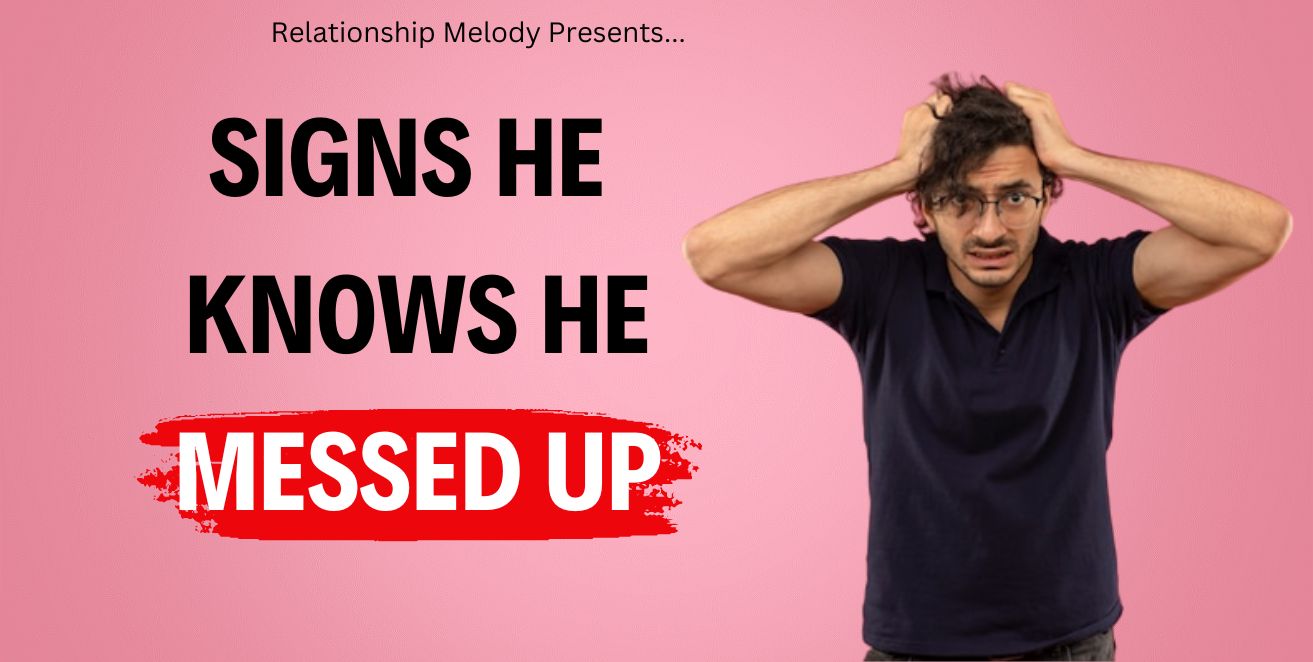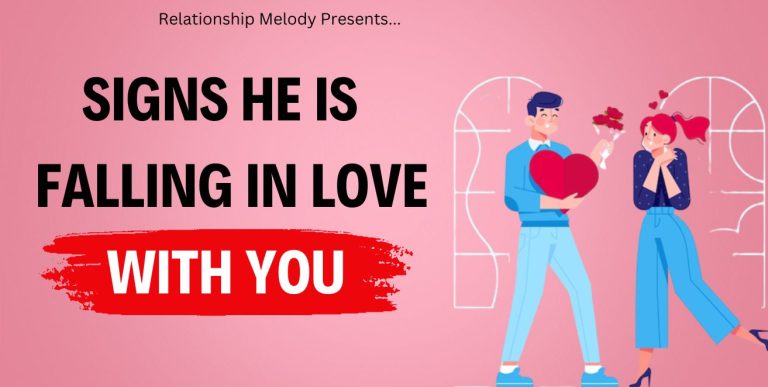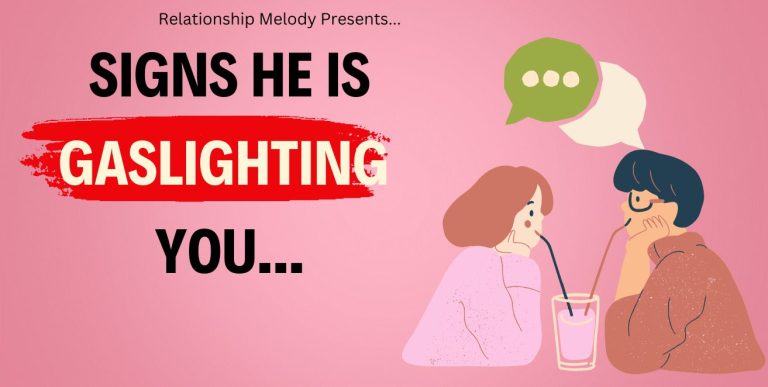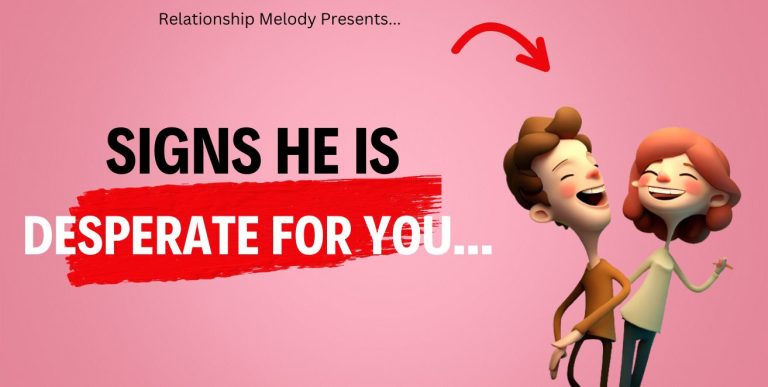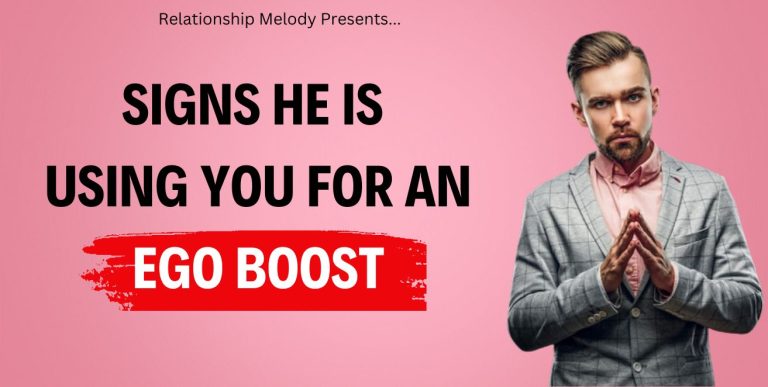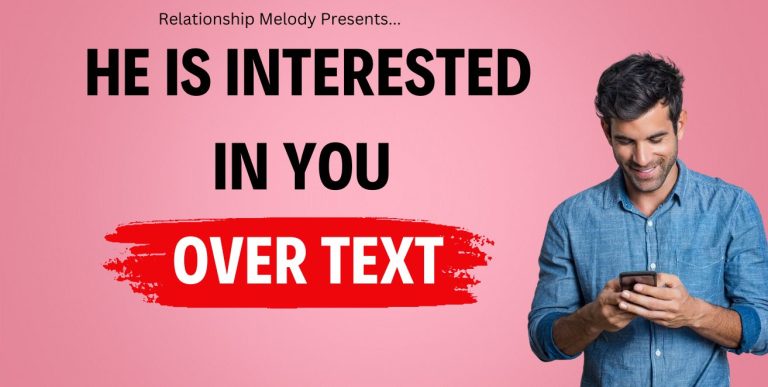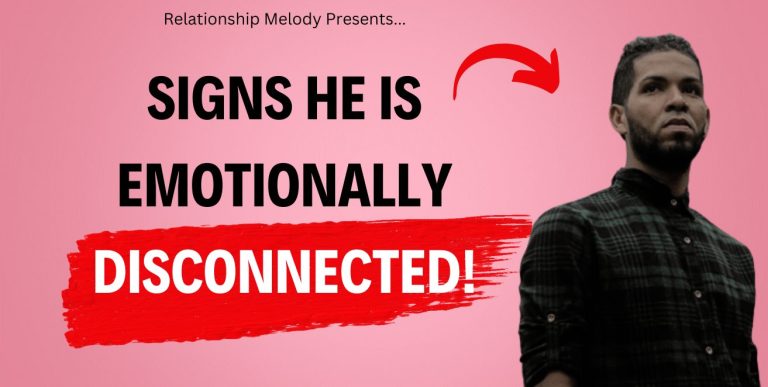25 Signs He Knows He Messed Up
Relationships are not always easy, and sometimes, one partner can mess up. Whether it’s a small mistake or a big one, they need to take responsibility for their actions and make things right.
However, it’s not always easy to tell if someone is truly sorry for what they’ve done or just trying to save face. In this blog post, we’ll be discussing 25 signs that a man knows he messed up in a relationship.
By recognizing these signs, you can determine whether your partner is truly sorry for their actions or if they’re just trying to avoid taking responsibility.
25 Signs He Knows He Messed Up
Here are 25 signs to know.
#1 He apologizes sincerely and repeatedly:
A sincere apology is an important first step in taking responsibility for one’s actions. It’s not enough to simply say “I’m sorry”; the apology must be genuine, and the person must show that they understand the impact of their behavior on the other person. Repeating the apology shows that they are committed to making things right and are willing to acknowledge their mistake.
#2 He takes responsibility for his actions:
Taking responsibility means owning up to one’s mistakes and not trying to shift the blame onto someone else. It’s important for the person to acknowledge their role in the situation and to show that they understand the impact of their behavior on the other person.
#3 He acknowledges the impact of his behavior on you:
It’s important for the person to understand how their actions have affected the other person and to show empathy for their feelings. This means listening to the other person’s perspective and acknowledging the validity of their emotions.
#4 He listens to your feelings and perspective:
Listening to the other person’s feelings and perspective shows that the person cares about their opinions and values their input. It’s important to give the other person space to express their emotions and validate their feelings.
#5 He offers to make amends or repair the damage done:
Making amends is a way of showing that the person is committed to making things right and repairing any damage that has been done. This can involve taking action to rectify the situation or making a sincere effort to improve the relationship.
#6 He asks for forgiveness:
Asking for forgiveness is a way of showing humility and acknowledging that the person has done something wrong. The person needs to show that they understand the gravity of their mistake and are willing to take steps to make things right.
#7 He doesn’t make excuses or shift blame:
Making excuses or shifting blame shows that the person is not truly taking responsibility for their actions. The person needs to acknowledge their role in the situation and not try to deflect blame onto someone else.
#8 He shows genuine remorse:
Genuine remorse means feeling regret and acknowledging the harm that has been caused. The person needs to show that they understand the gravity of their mistake and are committed to making things right.
#9 He gives you space if you need it:
Giving the other person space is a way of showing respect for their boundaries and allowing them to process their emotions in their own time. The person needs to be patient and understanding as the other person works through their emotions.
#10 He is patient with your healing process:
Healing takes time, and the person needs to be patient and understanding as the other person works through their emotions. This means being supportive and not pressuring the other person to forgive or move on before they’re ready.
#11 He seeks counselling or therapy to work on his issues:
Seeking counselling or therapy shows that the person is committed to personal growth and is willing to work on their issues. The person needs to take responsibility for their behavior and work to improve themselves.
#12 He is willing to change his behavior:
If the person is truly sorry for their actions, they should be willing to make changes to prevent the same mistake from happening again. This means being open to feedback and criticism and actively working to improve oneself.
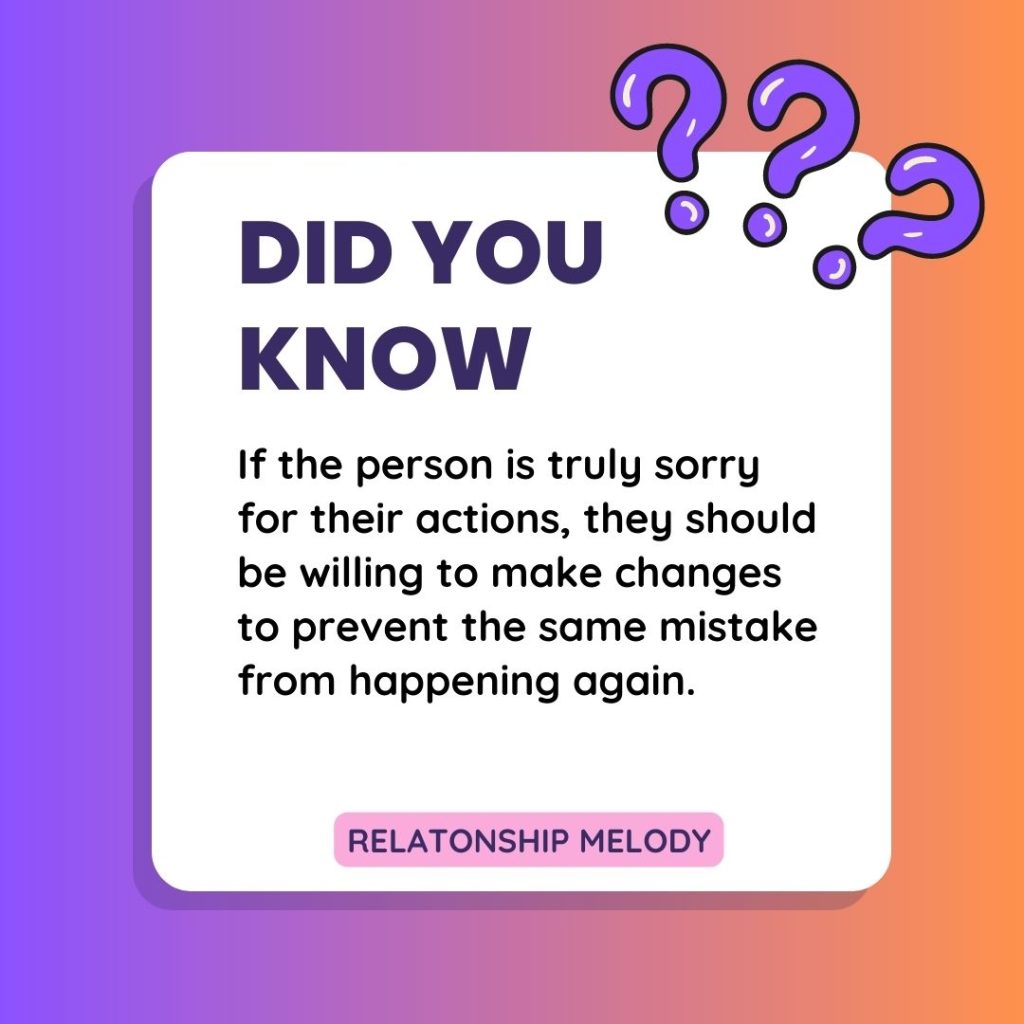
#13 He doesn’t minimize or trivialize your feelings:
Minimizing or trivializing the other person’s feelings shows a lack of empathy and understanding. The person needs to acknowledge the validity of the other person’s emotions and show that they understand the impact of their behavior.
#14 He doesn’t try to make you feel guilty for being upset:
Guilt-tripping is a manipulative tactic and is not a genuine apology. The person needs to show empathy for the other person’s emotions and not try to manipulate them into forgiving or moving on before they’re ready.
#15 He doesn’t try to rush you into forgiving him:
Forgiveness takes time, and the person needs to be patient and understanding as the other person works through their emotions. The person needs to respect the other person’s boundaries and not pressure them into forgiving or moving on before they’re ready.
#16 He is consistent in his efforts to make things right:
Consistency is key in showing that the person is truly committed to making things right. This means taking action to rectify the situation and actively working to improve the relationship over time.
#17 He doesn’t repeat the same mistake:
If the person truly learned from their mistake, they or should not repeat the same behavior. The person needs to show that they have taken steps to change their behavior and prevent the same mistake from happening again.
#18 He is transparent about his actions and intentions:
Transparency shows honesty and integrity. The person needs to be open and honest about their actions and intentions and not try to hide anything from the other person.
#19 He respects your boundaries:
Respecting the other person’s boundaries shows that the person values their autonomy and is willing to work within their comfort level. This means not pressuring the other person to forgive or move on before they’re ready and being respectful of their emotional needs.
#20 He is open to feedback and criticism:
Being open to feedback and criticism shows that the person is willing to learn and grow from their mistakes. It’s important for the person to be receptive to the other person’s perspective and to take their input into account when working to improve the relationship.
#21 He doesn’t demand forgiveness or expect you to forget:
Forgiveness is a personal choice, and the person needs to respect the other person’s autonomy and not demand or expect forgiveness. The person needs to show that they understand the gravity of their mistake and are committed to making things right, regardless of whether forgiveness is granted.
#22 He accepts the consequences of his actions:
Accepting the consequences of one’s actions shows that the person is taking responsibility and is willing to face the repercussions of their behavior. The person needs to acknowledge the impact of their behavior and take steps to make things right, regardless of the consequences.
#23 He doesn’t try to buy your forgiveness with gifts or favors:
Trying to buy forgiveness with gifts or favors is not a genuine apology and can be seen as manipulative. The person needs to show that they understand the gravity of their mistake and are committed to making things right, regardless of whether forgiveness is granted.
#24 He supports you in your healing process:
Supporting the other person in their healing process shows that the person cares about their well-being and wants to help them through the emotional fallout. This means being patient, understanding, and supportive as the other person works through their emotions.
#25 He shows genuine appreciation for your forgiveness:
Showing appreciation for forgiveness is a way of acknowledging the effort and emotional labor that goes into forgiving someone.
It’s important for the person to show that they understand the gravity of their mistake and are committed to making things right, and to express gratitude for the other person’s willingness to forgive.
Read more: Signs He Is Head Over Heels For You.
Conclusion:
Recognizing these signs can help you determine whether your partner is truly sorry for their actions or not. It’s important to remember that forgiveness is a personal choice, and you should not feel pressured to forgive someone if you’re not ready.
Communication is key in any relationship, and if you’re struggling with forgiveness or healing, it’s important to talk to your partner about your feelings and work together to find a solution.
Liked Our Article?
Our Patreon link: https://www.patreon.com/RelationshipMelody

Welcome to Relationship Melody! Our website is dedicated to all things on relationships, dating, and love! We are passionate about helping you navigate the ups and downs of love, and our goal is to provide you with valuable insights and information that will make your journey toward a fulfilling relationship smoother and more enjoyable.

